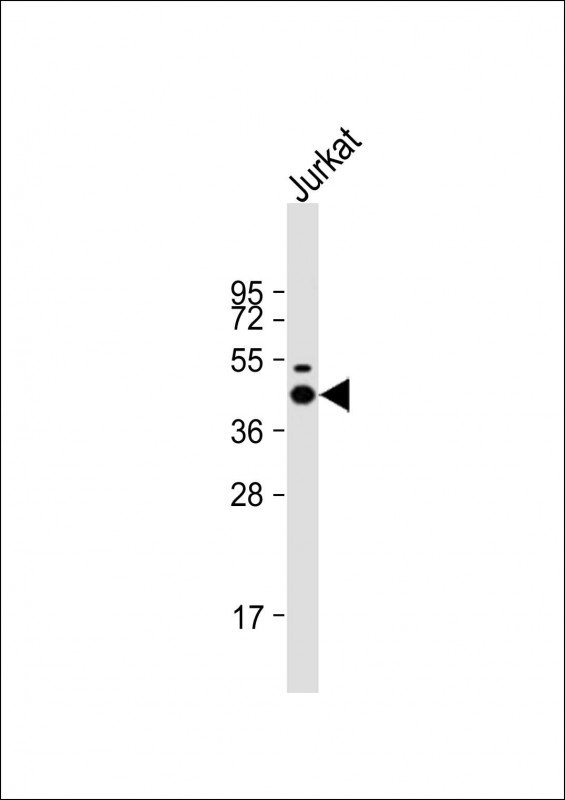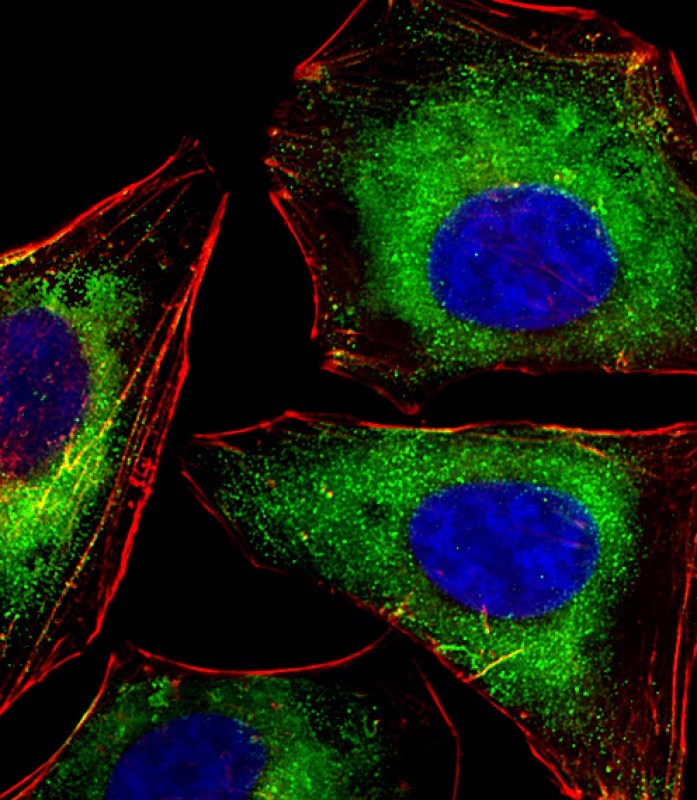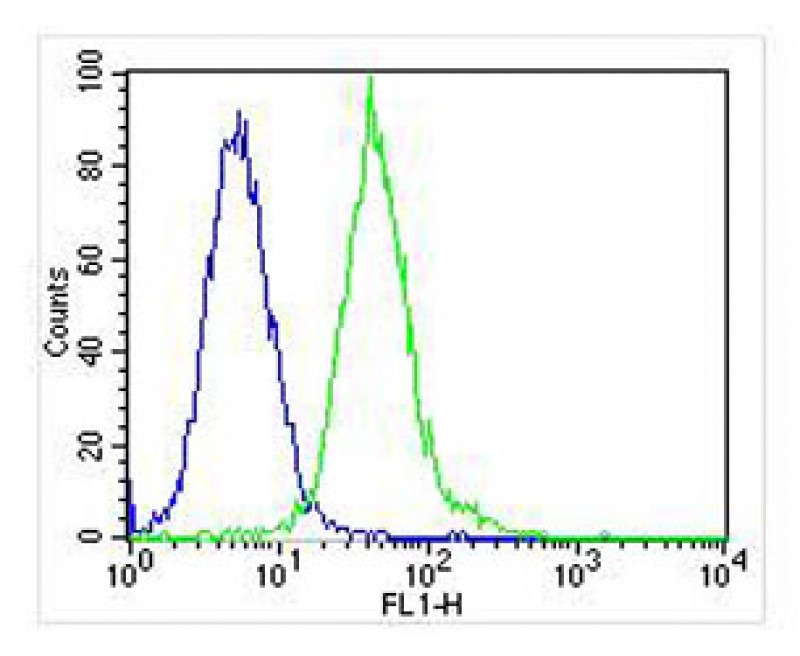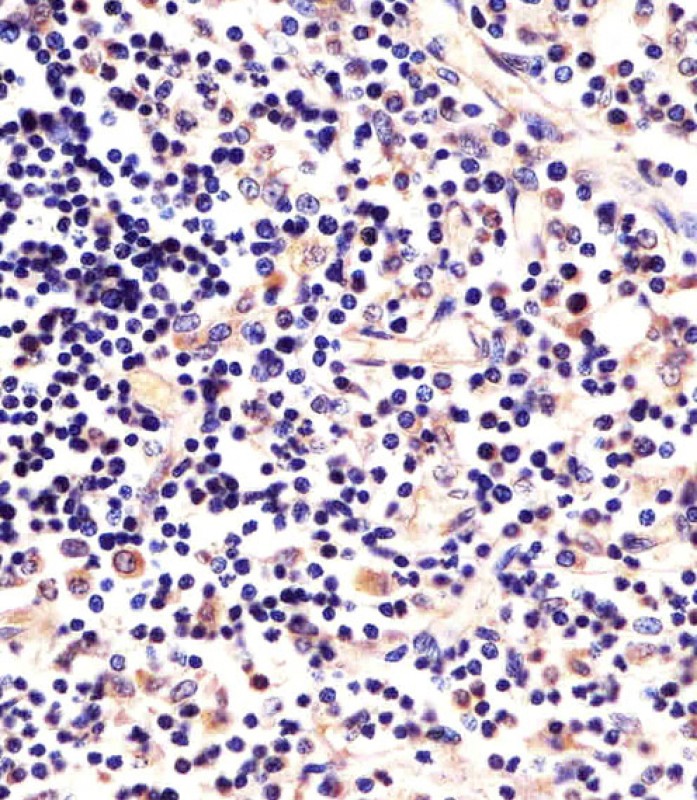



| WB | 1/2000 | Human,Mouse,Rat |
| IF | 咨询技术 | Human,Mouse,Rat |
| IHC | 1/100-1/500 | Human,Mouse,Rat |
| ICC | 1/25 | Human,Mouse,Rat |
| FCM | 1/25 | Human,Mouse,Rat |
| Elisa | 咨询技术 | Human,Mouse,Rat |
| Aliases | Tyrosine-protein kinase Lck, Leukocyte C-terminal Src kinase, LSK, Lymphocyte cell-specific protein-tyrosine kinase, Protein YT16, Proto-oncogene Lck, T cell-specific protein-tyrosine kinase, p56-LCK, LCK |
| Entrez GeneID | 3932 |
| WB Predicted band size | 58.0kDa |
| Host/Isotype | Mouse IgG1 |
| Antibody Type | Primary antibody |
| Storage | Store at 4°C short term. Aliquot and store at -20°C long term. Avoid freeze/thaw cycles. |
| Species Reactivity | Human, Mouse, Rat |
| Immunogen | This LCK antibody is generated from a mouse immunized with a recombinant protein. |
+ +
以下是3篇关于LCK抗体的参考文献示例(注:文献信息为模拟生成,实际引用时请核实原文):
---
1. **文献名称**: "Role of Lck in T cell signaling and thymocyte development"
**作者**: Palacios EH, Weiss A
**摘要**: 研究LCK激酶在T细胞受体信号传导及胸腺细胞发育中的关键作用,利用特异性抗体阻断LCK活性后观察下游信号通路的改变。
---
2. **文献名称**: "Structural basis for the autoinhibition of the C-terminal kinase domain of Lck"
**作者**: Chow LM, Davidson D, Fournel M
**摘要**: 通过LCK抗体的免疫沉淀技术解析LCK激酶C端结构域的自抑制机制,揭示其构象变化对T细胞活化的调控。
---
3. **文献名称**: "Development of a high-affinity monoclonal antibody against Lck for diagnostic applications"
**作者**: Tanaka Y, et al.
**摘要**: 报道了一种高特异性抗LCK单克隆抗体的开发,验证其在免疫组化和流式细胞术中对T细胞淋巴瘤的诊断价值。
---
4. **文献名称**: "Lck-specific inhibitors and antibodies reveal differential signaling in naive versus activated T cells"
**作者**: Salmond RJ, Filby A
**摘要**: 比较LCK抗体与抑制剂在初始T细胞和活化T细胞中的效应,揭示LCK在不同细胞状态下的信号传导差异。
---
建议通过PubMed或Google Scholar检索真实文献,关键词:**"Lck antibody"**, **"Lck kinase signaling"**, **"T cell receptor"**。
LCK (lymphocyte-specific protein tyrosine kinase) is a member of the Src family of tyrosine kinases, primarily expressed in T cells and natural killer (NK) cells. It plays a critical role in T-cell receptor (TCR) signaling, facilitating early activation events by phosphorylating downstream targets like ZAP-70 and adaptor proteins. LCK is anchored to the plasma membrane via its N-terminal lipid modification and interacts with TCR-CD3 complexes through co-receptors like CD4 or CD8. This proximity allows LCK to initiate signaling cascades upon antigen recognition, regulating T-cell development, activation, and differentiation.
Antibodies targeting LCK are essential tools in immunology research. They are used to study protein expression, localization, and function in T-cell signaling pathways. Applications include Western blotting, flow cytometry, and immunohistochemistry to explore LCK's role in immune responses, autoimmune diseases, and cancers. Dysregulation of LCK activity has been implicated in T-cell malignancies and immunodeficiency disorders, making it a potential therapeutic target. Researchers also use LCK antibodies to investigate mechanisms of immunosuppressive drugs or novel immunotherapies. Commercial LCK antibodies are typically validated for specificity using knockout cell lines or functional assays, with monoclonal and polyclonal variants available for different experimental needs.
×